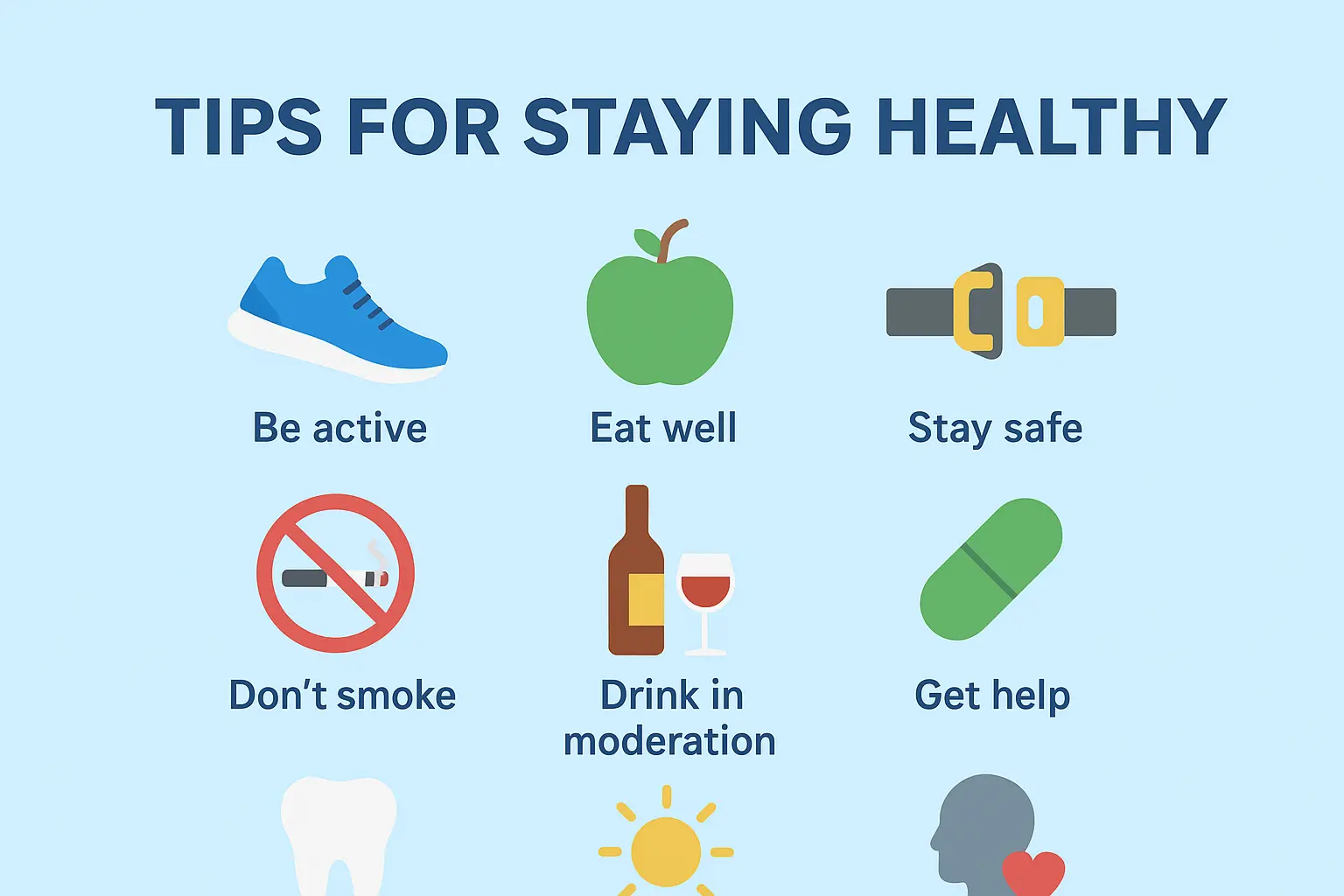
Introduction
Weight loss has become an extremely popular health objective in contemporary society. Nevertheless, due to the emergence of fad diets, excessive exercise, and unattainable demands on social media, people struggle to distinguish between fact and fiction. Weight loss should be sustainable without putting the body in starvation mode or using quick-fix remedies, but rather, an accessible way of living that is healthy both physically and psychologically.
The strategies provided below are research-supported and practical, and thus can be employed to ensure proper weight loss in the long term without compromising overall health.
1. Eat a Healthy and Well-Balanced Diet
Eating is the most important in managing weight. Give yourself permission to eat every category of food in moderation rather than entirely do away with it; eat lean proteins, complex carbohydrates, healthy fats, and a wide array of fruits and vegetables. High fibre diets are also known to keep down the appetite thus, aiding digestion. Experts suggest applying the diet patterns, including the Mediterranean diet or the DASH diet, which focus on whole foods and moderate portions.
2. Practice Portion Control
Nutritious food is also known to add weight when taken in abundance. People can prevent overeating by eating slowly with the use of smaller plates and paying attention to hunger signals. Research indicates that individuals who take their food without distractions, e.g., no use of phones or televisions during the meal, are likely to eat less.
3. Stay Consistently Active
Exercise enhances metabolism, builds lean muscle, and improves the level of energy. Although physical exercises in the gym are good, they are not the sole alternatives. Walking, cycling, swimming or even dancing are a few examples of activities that can be incorporated in your daily movement targets. Experts recommend having at least 150 minutes of moderate-intensity online activity weekly, and at least two instances of resistance training to achieve the maximum outcomes.
4. Make Sleep and Recovery a Priority
Lack of sleep impairs the hormones in the body that regulate hunger, including leptin and ghrelin. Considering this, insomnia tends to cause hunger and overconsumption. Aim for seven to nine hours of good sleep at night and have a regular time of going to bed. Diet and exercise cannot be effective without good sleep hygiene in terms of being able to maintaining weight.
5. Hydrate Throughout the Day
Water is essential in metabolism and digestion. Thirst arises many times and is taken to be hunger, and as a result, one ends up just snacking. Consumption of water before food may contribute to reduced calorie and better satiety. Trading sugary beverages with water or herbal tea, or infused water, will go a long way in reducing the total calorie intake.
6. Manage Stress Effectively
Constant stress raises the level of the cortisol hormone and this may facilitate fat accumulation, mostly in the abdomen. Another way to address stress and have better emotional regulation to avoid emotional eating is to engage in mindfulness meditation, deep breathing, yoga, or journaling.
7. Establish Specific and Attainable Objectives
Losing weight should not be considered a speedy process. Disappointment and relapse are usually caused by unrealistic expectations. Better, ensure a small but consistent weight loss of 0.5 to 1 kg/ week (1 to 2 lbs/ week). Motivation can be achieved through measurements, photos, or journal entries, and tracking progress.
8. Rolex Processed and Sugary Foods
Foods of high processing have generally elevated quantities of added sugar, bad fats, and empty calories. The decrease in fast food, sodas, and snacks, e.g., chips or pastries, can drastically decrease the results of energy and the weight. Instead, use natural sweeteners, like honey or dates, and as much as possible, eat meals that are cooked at home.
9. Remain Accountable and Assisted
Social support contributes significantly to the maintenance of motivation. Finding an exercise regime or seeking the advice of a nutritionist, or exercising with a friend or partner can provide the consistency. It was also found that individuals who document their food or performances often attain weight loss in the long term.
10. Concentrate on the way of life, rather than limitations
With a sustainable lifestyle, one can be in it forever and not just in a moment as with a temporary diet. You can enjoy flexibility where there is occasional indulgence and take into consideration body signals. It is not about excellence and achievement, but improvement, to have a healthier relationship with food, exercise, and self-concept.
Frequently Asked Questions:
1. What is the most sustainable way to lose weight?
The best solution of gaining weight is general and gradual changes in lifestyle instead of fast-fix solutions. Long-term effects would be achieved when a healthy diet that is high in whole foods like vegetables, low-fat proteins and whole grains is prioritized in addition to frequent exercise, sleep and stress management. Sustainability also entails realistic goals and attention of the overall well-being instead of just the figure on the scale.
2. What is the most sustainable way to lose weight?
A widely used strategy is the 3-3-3 rule, which focuses on equal effort in crucial areas of life. It normally signifies the three balanced meals consumed each day, in the presence of the activities of no less than 30 minutes three times weekly, and having three primary habits that must be involved in place of which are hydration, rest, and mindful eating. Although the true meaning might differ, the idea promotes stable and comfortable trends rather than just drastic eating.
3. What is the safest, most effective way to lose weight?
Losing weight by eating healthy and exercising is the ideal and safest method of losing their weight as it leads to a calorie deficit. Health experts recommend a slow weight loss of 0.5 to 1⁻ 1kg/wk (1 to 2 lbs). It is possible to talk to a registered dietitian or a physician who would assist in creating a more specific approach to the problem because it would guarantee nutritional adequacy and safety.
4. How to lose 5 kg in 7 days?
Losing 5kg within a span of seven days is a stubborn target and is not usually advisable, since it is not only unsafe, but also unsustainable. There will however, be certain temporary weight loss due to water loss, abate bloating due to clean eating, eliminating processed foods, and reduction of salt and sugar consumption. To achieve permanent fat loss, one has to consider a slow, gradual approach that will encourage healthy metabolism and not to lose of muscle mass.
Conclusion
It is entirely a matter of mentality as much as meals and movement for weight loss. One should be patient, balanced and compassionate to oneself in a sustainable approach. A balance between good nutrition, exercise, sleep, and emotional attention will help one to attain and sustain a healthy body weight, more importantly a healthy life.
Related Posts

Healthy Living Blogs to the Future: The 2025 List...
Oct 16, 2025

